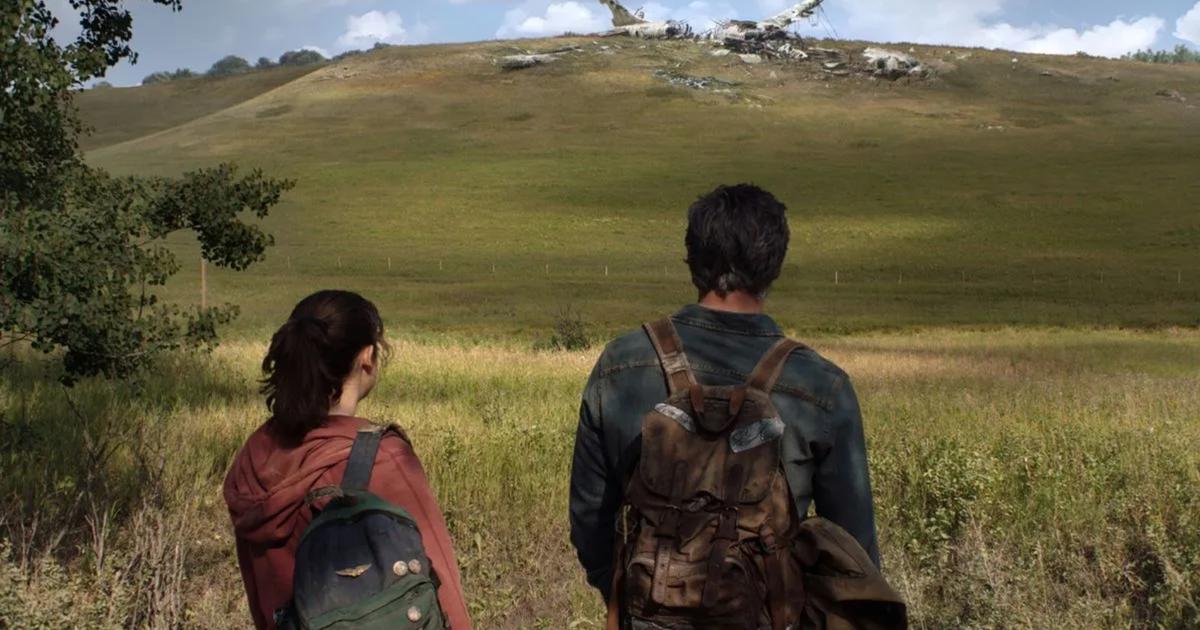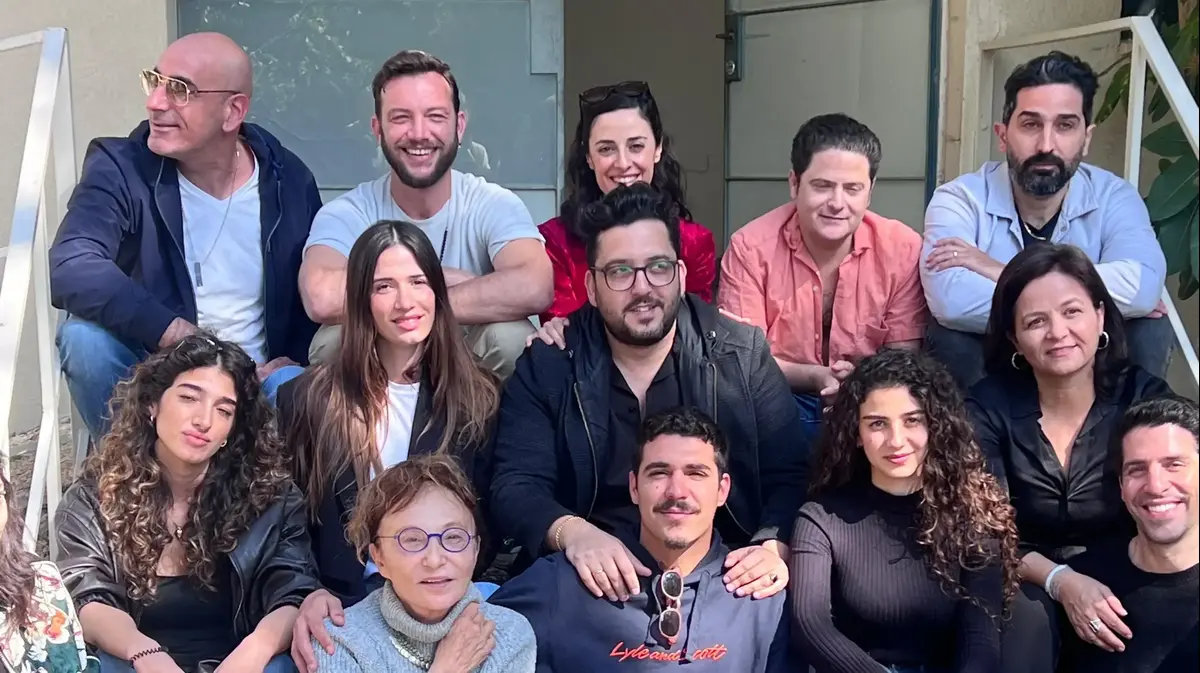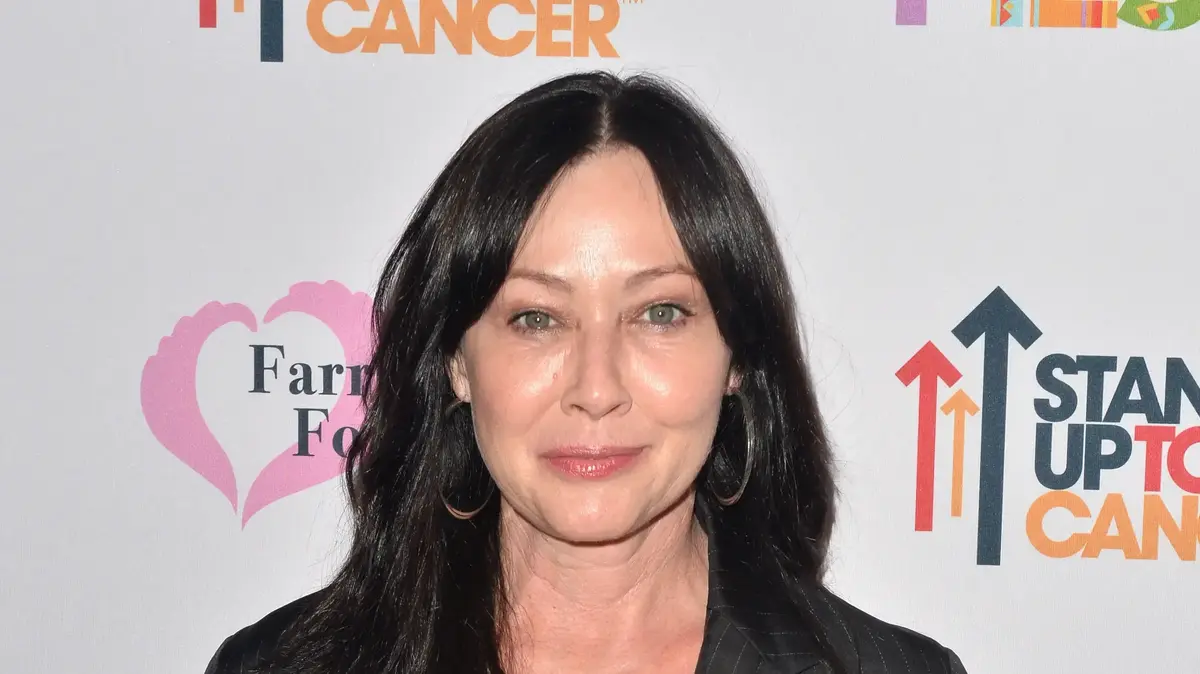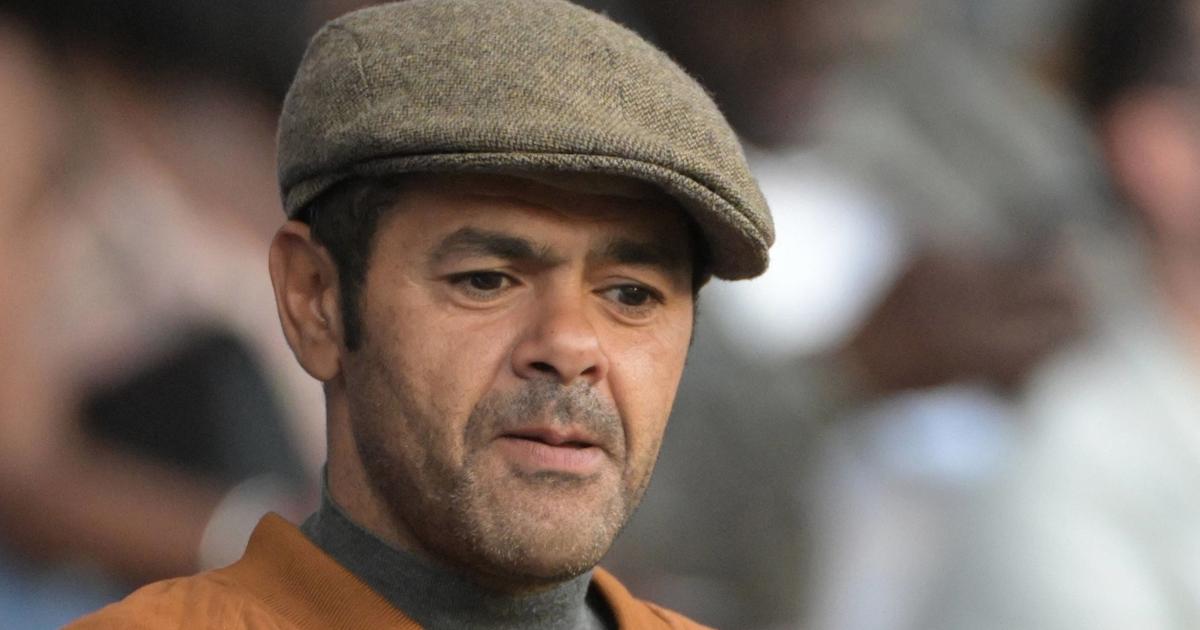In music, a hit often carries a “
hook
”: a hook, which manages to catch the listener's attention and never leaves it, works on his ear, his memory and resounds as soon as the song comes back.
From one episode to the next,
The Last of Us
, inspired by a video game of the same name, seems to be built in the same way, with hooks that return from one episode to another, keeping the viewer alert and guaranteeing , in the end, the success of the series.
We have thus counted 5 hooks, delectable and powerful, which permanently reinforce the narration of the series and its formal beauty, as well as its anchoring in the era.
Explanations on how this series captivates us.
In video, Penn Badgley looks back on his relationship to his character in the series
You
1.Childhood or what to do with our children in the event of an apocalypse
The storytelling of
The Last of Us
really begins with an act which is not that of the appearance of a fungus which seizes the bodies, but with the murder of a young girl, killed while she and her father, the main male character of the series, try to escape.
She dies killed by a man in uniform who has nothing to do with a zombie.
In this, the series, beyond the monstrous creatures and the fungus that takes over bodies, explicitly says that it has as its horizon the way "normal" beings, humans, treat their children.
It immediately arouses a much stronger and more insidious horror than that carried by monsters.
And this is then reflected in the relationship maintained by Joel, the father of the girl murdered before his eyes, and Ellie, the young girl he must lead and protect throughout
Read also“I am your cool and sexy dad”: on the red carpet, Pedro Pascal, star of
The Last of Us
, has fun with his reputation
During their journey, the encounter with another duo formed by an adult and a child, in this case a father and his son, further underlines the way in which adults monopolize children and treat them.
In this, the series holds its viewer, who never ceases to wonder how long Ellie will survive and how her semblance of childhood will metamorphose.
The question is all the more cruel since Ellie is a carrier of the fungus but is immune to it.
Until when ?
And why ?
Many things hold in this balance which evokes what comics and films like the X-Men worked on in the form of metaphors: adolescence is a time of change, often incomprehensible for those who do not live it or no longer live it.
This disturbing strangeness, in the Freudian sense of the term, is indeed the crux of the series: in the face of the probability of an announced apocalypse (the series was launched with a rather strong communication saying in essence that the mushroom scenario is probable because global warming), what are we going to do with our children?
How will they survive?
Who will accompany them?
We watch
The Last of Us
first to understand this, and to ward off fate too, perhaps.
Faced with the probability of an announced apocalypse, what are we going to do with our children?
2.Redemption or how to atone after surviving by doing anything
In the face of child abuse, what can adults do?
They seek redemption.
Joel is on a perpetual quest: his silence and the violence he shows conceal the wound of the loss of his daughter.
And the viewer wonders whether this character, symbolically dead when his child dies, will be able to come back to life, to come back to life.
His quest across the country, protecting a child he initially dislikes, is built to lead to the establishment of a relationship between them.
The spectator is attached to this by a spirit of voyeurism: how will the relationship be built?
Will Joel adopt Ellie?
Will Ellie save Joel?
It's not so much the finality that interests us but the process between them: what holds the series together is their way of being and evolving together.
And we fear as much for the fragility that unites them as for the attacks they suffer.
Will they end up forming a family?
That's the whole point, which refers to one of the engines of the most popular American series, from the
Sopranos
to
Euphoria
: how a group forms a family, even a dysfunctional one.
Especially dysfunctional?
Read alsoToxic brotherly relationships, when brothers and sisters hate each other
3. Nostalgia or “it was really better before”?
Look at episodes 3 and 6: we see places preserved, closed, closed, in which the world is rebuilt identically to what it was.
Identical ?
Not entirely.
Episode 3 depicts a couple of men who have found each other after the end of the world and survive in a suburban town typical of the America of soap operas and series of the 90s or 2000s but completely deserted and surrounded by an electrified grid.
Their life is the framework of
Desperate Housewives
completely deconstructed and brought back to the yardstick of their needs.
In episode 6, we see a city that has been completely preserved but which comes out of another era, that of the western and in which the inhabitants seem happy: as if survival in America from The Last of
Us
, that is to say that of the future, went through a return to the past.
Nostalgia, as we know, is one of the traits of the 2020s. Will it save us?
Read alsoNostalgia is no longer what it used to be, but today it sells
The fungus in question already exists in nature but does not affect humans.
For now.
4. Guilt or why we didn't react sooner instead of watching series
It's hard to watch
The Last of Us
without feeling guilty about the ills of the present day: the series is clearly built on 2020s fears of the expanding domain of viruses, the emergence of new and uncontrolled diseases, the nature taking its revenge, galloping global warming, announced shortages.
She draws a probable diagram of the future of humanity, in particular by the scientific caution cornered at the start of the series: the fungus in question already exists in nature but does not affect humans.
For now.
Watching
The Last of Us
is about trying to see face to face with what we seem to believe lies ahead and the ways in which we might survive.
Or not.
5.The ecological quest or how the planet will have its revenge
What counts in a video game is often the process of the game, the quest and discovery both of the landscape that is taking shape and of oneself too, of one's ability to survive in video game universes.
The Last of Us
starts exactly like this: the making of the first scenes of the first episode resembles the way all classic video games begin: throwing the characters into unknown territories, which are revealed as the characters progress - and the how they interact, and kill each other too.
Quest and discovery of the unknown: this is also the way in which one of the most catchy sagas of literature and cinema,
The Lord of the Rings
by JRR Tolkien, was conceived.
At a certain point in the story, the goal of the quest does not matter, what matters is how to move forward and if we continue to do so.
What keeps the spectator in suspense is the resourcefulness of the characters, their way of proceeding and of surviving.
What amazes, in a very “exciting” way, in
The Last of U
s is the permanent discovery of the modified American landscape after the cessation of life as it was: the journey across the country is an opportunity to film a completely liberated nature, but also devastated cities.
As if evil had come from the urban metropolises and remained there, but nature was preserved from it.
The Last of Us
might just be the bible of the 2020s generation
In this,
The Last of Us
is undoubtedly the series that best portrays the ecological theories born in the 1960s and 1970s, advocating a return to nature, an abandonment of cities.
To watch the series is to be caught up in the articles and chronicles of
The Whole Earth Catalog
, a pioneering publication published between 1968 and 1974 giving all the indications for surviving alone, in autarky, for being self-sufficient.
This influential journal over the years seems to have found there a territory of fiction which makes full use of its theories.
In 2005, Steve Jobs himself said that
The Whole Earth Catalog
was the bible of his generation.
The Last of Us
might just be the bible for the 2020s generation.









